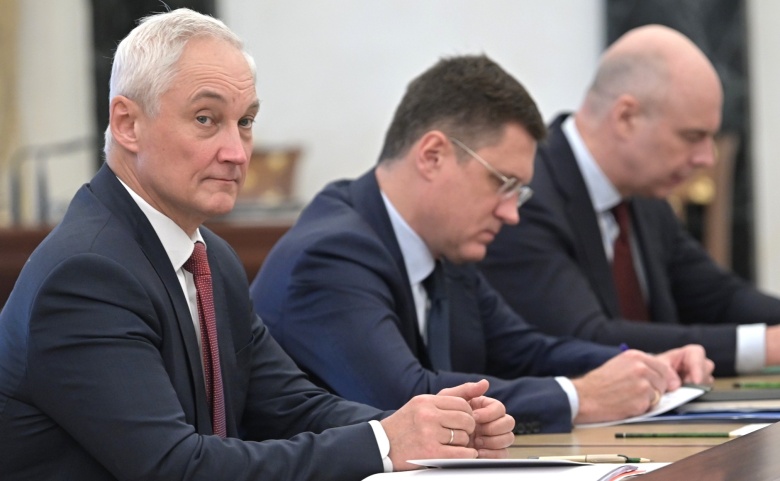The first week after the introduction by the European Union and the G7 of the ceiling on prices for Russian petroleum products in addition to oil (the restrictions, we recall, officially came into force on February 5, although they were announced in advance and taken into account by the markets long before this date) turned out, in the words of exchange commentators, multidirectional.
On the one hand, the prospects for hydrocarbon exports and the budget dependent on them look increasingly gloomy, and the best that the government has been able to come up with in response to the collective actions of “unfriendly” states is to voluntarily reduce production by 500 thousand barrels per day.
This measure, however, is not innovative, since it has previously been repeatedly tested by the leaders of the global oil industry – in particular, Saudi Arabia. But the question of how such attempts to influence the conjuncture will help Moscow protect itself from sanctions and return to the regime of its usual super-profits remains open.
On the other hand, listen to Russian officials, nothing terrible is happening – in the purely economic sense of the word – Putin’s economic model is holding the sanctions blow. The authorities are encouraged by the results of last year and flattered by the forecasts for this year – in particular, the radically revised forecast of the IMF (which was later supplemented by positive expectations of the Central Bank of the Russian Federation), which promised instead of a further recession a symbolic growth of the Russian economy. Therefore, following President Putin, the Russian authorities began to do what they loved – they began to make long-term plans.
In the next ten years, the country will have to rebuild its cities, said at the government hour of the head of the Ministry of Construction in the State Duma, Chairman of the Committee on Construction and Housing and Communal Services Sergey Pakhomov.
“In general, colleagues, we are waiting for a ten-year period of perestroika <… > We will have to change everything, in fact, rebuild our cities in the horizon of the next 10 years”
According to Pakhomov, the last such breakthrough was made under Nikita Khrushchev. Now, the deputy added, “the houses are already worn out, as well as the networks.” In response to the problem, the head of the Ministry of Construction, Irek Faizullin, just in case, clarified that in 2022 a record 102 million m2 of residential real estate was put into operation in the country.
But this is not at all to the fact that someone is going to stop there. So, this week Faizullin appealed to Putin with the idea of including the furnishing of apartments in the parameters of mortgage transactions, where rates are subsidized by the state – in order to support the forest industry at the expense of the taxpayer at the expense of the taxpayer (“This approach will help reduce the price of furniture for consumers by including it in the loan amount, and will also ensure additional demand from citizens for domestic goods”).
Meanwhile, the Ministry of Transport proposed to the government by the autumn to approve a program to replace public electric transport, which was previously estimated at more than 0.5 trillion rubles. The existing fleet of trams and trolleybuses will undergo a “national inventory”.
Interested agencies such as the Ministry of Natural Resources were quick to express their support for the costly enterprise (“We always support the renewal of public transport to environmental, including electric”), diligently pretending that they believe in its feasibility. Although there is not even a deadline for the approval of the project, not to mention the understanding of the sources of funding.
During the last discussion of transport modernization plans in the State Duma in October, Transport Minister Vitaly Savelyev, who was present at the meeting, hinted that the possibilities of the federal budget – hopelessly scarce – do not allow counting only on it.
Do not cut the multibillion-dollar budget of state support for aircraft construction because of trams, within the framework of which, according to Rostec, more than 1,000 new units of aircraft should appear in the country in the next seven years. But where do you get the money from?


This week it became known that the government is discussing with large companies the issue of a “one-time voluntary contribution” to the budget, said First Deputy Prime Minister Andrei Belousov:
“There is a windfall tax, such a thing in tax practice as a one-time collection of taxes. The issue is now being worked out. The issue is being worked out together with the business. This is seen as a voluntary story, business is actively involved in this.”
That’s right: the windfall tax that a government official is talking about is a tax on unforeseen, literally “fallen from the sky” profits, initiated by the state. It is very embarrassing in the Russian conditions – and even in the mouth of a well-known enthusiast – the idea of dekulakization of exporters who “” the state – the principle of voluntariness.
There is also a suspicion, regardless of where the parties to these unpleasant negotiations will eventually come to, that the government will not resist the temptation to continue to return to the practice of “one-time charging” as necessary. The war continues, the regime does not change, there is less money, and there is a “decade of perestroika” in the country. There are clearly not enough links in this chain. In the latest Chronicles of State Capitalism:
Gosmarketing. “We expect continued strengthening demand for our products”

